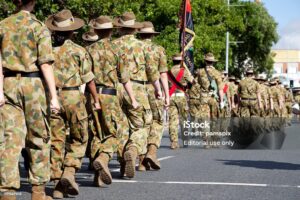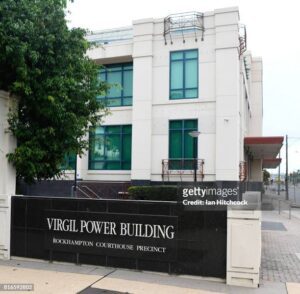Can a completed life insurance nomination form be regarded as a valid will?
Consider the circumstances of Ron Selig who died in November 2022 in a farm accident whilst working on a property near Longreach at the edge of outback Queensland.
 He lived in rented accommodation at Buderim at the time. His estate consisted only of a $150,000 life policy with Australian Seniors Insurance (“ASI”), furniture and personal effects of modest value.
He lived in rented accommodation at Buderim at the time. His estate consisted only of a $150,000 life policy with Australian Seniors Insurance (“ASI”), furniture and personal effects of modest value.
Ron had married his first wife, Vicki Garvie in 1974. They had two children together, Aaron and Melinda. Their marriage ended in divorce in 1995, but they remained good friends.
He then married Janna in 1996. They also had 2 children together, born in 2002 and 2007. Ron and Janna separated in 2008, but they had never formally divorced.
His last formal will made in November 2003 named Janna the executor and beneficiary.
Her application for probate of that will was dismissed by the Queensland Supreme Court Court in June 2023 under opposition from Aaron and Melinda.
The pair instead proposed that documents Ron had completed in April 2021 in connection with his ASI life policy – a “My Wishes” form and a “Nomination of Beneficiaries” form – should be considered as his last will.
The deceased had completed the forms with the assistance of first wife Vicki, who since 2014 visited him at least 2-3 times a week from her home at Nambour.
The court heard that Ron had called Vicki in April 2021 and asked her to come over “to help him with something”.
He already had the two insurance forms laid out on a table when Vicki arrived and requested her help to “write his Last Will and Testament”.
He explained he wanted Vicki her to write on the Nomination of Beneficiaries form that their children – Melinda and Aaron – were each to be 50% beneficiaries of his life insurance policy.
Ron told her not to bother writing down anything about his furniture as it was worth nothing, and when the time came Melinda and Aaron could work out what they wanted to do with it.
Vicki read through each of the two documents with him and completed the answers as he instructed. The “My Wishes” form was completed with specific details regarding funeral arrangements, where his ashes were to be scattered, and who was to be told of his death.
She swore from the witness box that after completing the documents, Vicki read through them both out loud with him to make sure he could follow what had been written complied with what he had asked her to write. Ron then signed each document in her presence.
Melinda and Aaron first made claim against the ASI policy, which was refused because Ron had neglected to submit the Nomination form to ASI before his death.
As observed by Justice Lincoln Crowley, had the form been received by the insurer before the deceased’s death, there would have been no need for the court proceedings.
In opposition to the children’s claim, Janna contended that the two ASI forms were forgeries.
She argued it was “simply illogical” for Ron to have signed them as they maintained a close relationship and had even reconciled. Ron had made no mention – she swore – of the insurance nomination or of any desire to benefit the children in any way.
Preferring Vicki’s “cogent, direct evidence”, the court rejected Janna’s assertions.
The judge accepted that Ron had told Vicki, Melinda and Aaron on separate occasions before he died that his “will” was in the top drawer of his bedside cupboard ie, the location in which the two insurance documents were found after his death.
Justice Crowley held that the content of the two insurance documents were the expression of his testamentary intentions and that Ron intended them to be his last will. That conclusion was even more compelling – so held the judge – given Ron knew the life policy was his only significant asset.
His honour also was satisfied that Ron had the necessary capacity to make a will at the time the documents were signed, noting that the death certificate and coroner’s report “do not indicate any illness or condition that would suggest or raise any suspicion of the lack of capacity”.
He ordered that the insurance documents were the last valid will of the deceased, and Melinda and Aaron were appointed as administrators of the estate which they were to share equally.
The court might perhaps have come to a different conclusion if the estate had other substantial assets that were not dealt with by the nomination form. The decision however shows that careful consideration needs to be given to any documents found that give some indication of how a deceased wishes their estate to be distributed.
Selig v Selig [2024] QSC 189 Crowley J, 26 August 2024
source https://qldestatelawyers.com.au/life-insurance-nomination-found-to-be-an-informal-will/
 She claimed her father started molesting her from the age of five, first raped her at the age of 13, and that when she was 17 he began drugging her.
She claimed her father started molesting her from the age of five, first raped her at the age of 13, and that when she was 17 he began drugging her. However some informal notes found at his residence by relatives who assisted him when he was hospitalised appeared to grant Cancer Council Queensland a 20% share.
However some informal notes found at his residence by relatives who assisted him when he was hospitalised appeared to grant Cancer Council Queensland a 20% share. In her first will made in December 2013, she left the whole of her estate to Juliana.
In her first will made in December 2013, she left the whole of her estate to Juliana. Consider the case of Ken Young who died in August 2022 – at age 85 – without any known will. Ken was divorced, had no children and his closest relatives were his niece and two nephews.
Consider the case of Ken Young who died in August 2022 – at age 85 – without any known will. Ken was divorced, had no children and his closest relatives were his niece and two nephews. He had been in a 20 year relationship with Karen Hibberd until December 2019. Karen’s three infant children from a prior relationship – Kirt, Kimberley and Kyle then aged 7, 4 and 2 – began living with the deceased at the start of the couple’s relationship.
He had been in a 20 year relationship with Karen Hibberd until December 2019. Karen’s three infant children from a prior relationship – Kirt, Kimberley and Kyle then aged 7, 4 and 2 – began living with the deceased at the start of the couple’s relationship. Jacobs did nothing to administer the estate for many years. John applied to the Supreme Court of Queensland and in September 2018 obtained orders from Justice Martin Burns removing him as executor.
Jacobs did nothing to administer the estate for many years. John applied to the Supreme Court of Queensland and in September 2018 obtained orders from Justice Martin Burns removing him as executor. The dispute in which the ruling arose relates to former military lawyer David McBride – who last November pleaded guilty to revealing national defence secrets to journalists – in a challenge to the will of his mother Patricia who died in November 2021.
The dispute in which the ruling arose relates to former military lawyer David McBride – who last November pleaded guilty to revealing national defence secrets to journalists – in a challenge to the will of his mother Patricia who died in November 2021. His wife and one child had died before him without any children of their own.
His wife and one child had died before him without any children of their own. By her last will made in November 1981, Ellen had gifted $5,000 to her brother; $40,000 to her only son, Peter; and the residue of her estate in equal shares to her grandchildren.
By her last will made in November 1981, Ellen had gifted $5,000 to her brother; $40,000 to her only son, Peter; and the residue of her estate in equal shares to her grandchildren. The trustee of the fund was Rentis Pty Ltd of which Robert was the sole director as is required for a tax law compliant fund.
The trustee of the fund was Rentis Pty Ltd of which Robert was the sole director as is required for a tax law compliant fund. He made his will in October 2017 – after the death of his son – leaving everything to Cherie and appointing his friend Daniel to be the executor.
He made his will in October 2017 – after the death of his son – leaving everything to Cherie and appointing his friend Daniel to be the executor. He married Maria in 1951. They had a daughter, Teresa – born in 1952 – the same year in which Jan adopted Maria’s son Richard from a former relationship as his son.
He married Maria in 1951. They had a daughter, Teresa – born in 1952 – the same year in which Jan adopted Maria’s son Richard from a former relationship as his son. At a minimum, a prospective applicant must be able to show they are an eligible person, ie a dependent or a family member; that they need a better provision from the deceased’s estate than has been provided; and in all the circumstances it is just and reasonable that the estate of the deceased person ought to provide a greater benefit.
At a minimum, a prospective applicant must be able to show they are an eligible person, ie a dependent or a family member; that they need a better provision from the deceased’s estate than has been provided; and in all the circumstances it is just and reasonable that the estate of the deceased person ought to provide a greater benefit. Having been diagnosed with terminal lung cancer in late-2017 or early-2018, he was advised to put his affairs in order.
Having been diagnosed with terminal lung cancer in late-2017 or early-2018, he was advised to put his affairs in order. When agreement can’t be reached, the matter goes to a trial where a judge considers whether a benefit should be provided and if so, how much.
When agreement can’t be reached, the matter goes to a trial where a judge considers whether a benefit should be provided and if so, how much. Two of those nephews – Luke and Damien – were appointed to be his executors.
Two of those nephews – Luke and Damien – were appointed to be his executors. The Supreme Court of Queensland recently had to determine the validity of a binding nomination that was challenged on one of those grounds.
The Supreme Court of Queensland recently had to determine the validity of a binding nomination that was challenged on one of those grounds. Ross was born in 1935 and lived his entire life at his parents’ home in Largs Bay, a suburb in the north-west of Adelaide on St Vincents Gulf, until he suffered a fall in 2018.
Ross was born in 1935 and lived his entire life at his parents’ home in Largs Bay, a suburb in the north-west of Adelaide on St Vincents Gulf, until he suffered a fall in 2018. Sijia Guo brought a claim for provision out of the estate of her late mother Wei Hong who disappeared in April 2001 never to be seen again. Under intestacy rules her entire estate passed to her spouse, leaving nothing for her adult daughter.
Sijia Guo brought a claim for provision out of the estate of her late mother Wei Hong who disappeared in April 2001 never to be seen again. Under intestacy rules her entire estate passed to her spouse, leaving nothing for her adult daughter.